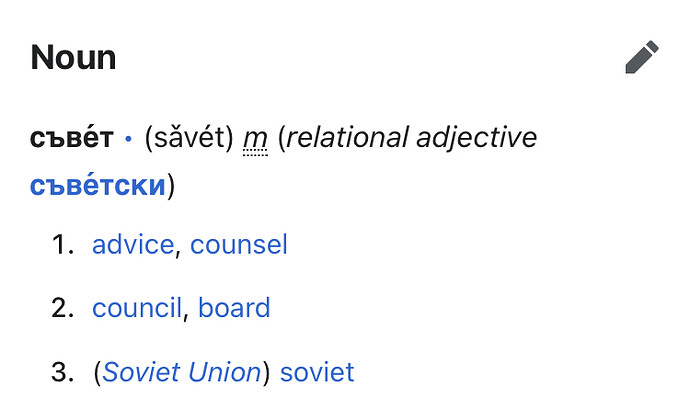How did you do it in LESS ATTEMPTS THAN ME
Well im not
go learn an ancient language nobody else speaks
maybe you’ll win at wordle then
Summary
Its “advice”
zone told us
you can just go home
Wordle 1448 5/6

























Tutuu is useless?

it’s always smart to accept your lot in life
given what that requires, though, i expect to see you shortly
I
Summary
got told it means soviet was I lied to
check n.3
Summary
The root of the word is the same. The soviet union is translated to “advisory council”. But in bulgarian the word only means advice, we use съветски (notice the ски in the end) to refer to soviet. Its like a … pronoun thing, im not sure if pronoun is the right word. A grammar element. Even in russian its the same, they also add that in the end. Only in english can the word soviet be like both a noun an an adjective. Nouns cant be adjectives in bulgarian and russian
Declension?
It must suck not having english flexibility
In toki pona all words can be any part of speech freely and their grammatical function is marked by separate particles
[subject] li [verb] e [object]
lie. your words not mine
derivational adjectival suffix
possibly that relational adjective word in that dictionary screenshot you shared is also applicable
My favourite is la, you use that to set aside context. Just any context. So “ni la, [sentence]” means “in this context, [sentence]”. It can be used to mark topic, time, place, any other kind of setting, cause and effect, perspective, et cetera. I find myself missing it in English all the time
Usually you can approximate an equivalent, which is why I use the English phrase “in thie context” so often. I’m thinking in toki pona and then translating it

